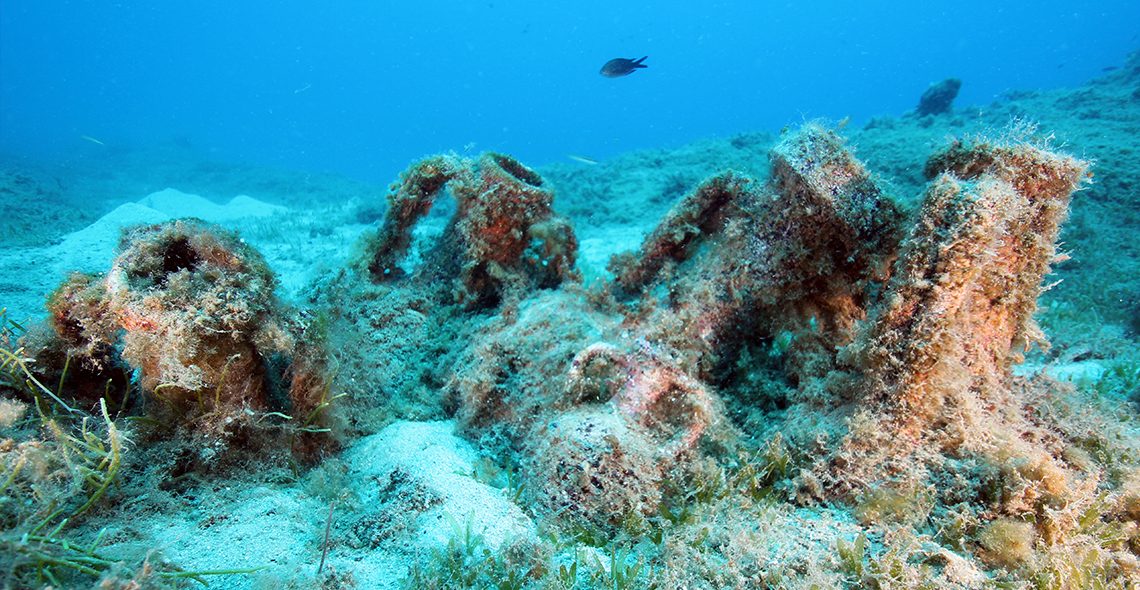Michaela Reinfeld
On April 18, 2020, the British daily newspaper ‘The Guardian’ sparked readers’ imagination with its headline “Mediterranean shipwrecks reveal ‘birth of globalisation’ in trade”. The reason for this was the discovery of a whole “fleet” of Hellenistic, Roman, early Islamic and Ottoman shipwrecks by a British company in the Levantine Basin. In particular, the discovery of an Ottoman merchant ship from the 17th century, which had loaded hundreds of objects from 14 different cultures, caused a sensation for the discoverers and in the media.
However, the mention that the 12 ‘Enigma wrecks’ “lie beyond any country’s territory” should immediately arouse suspicion. Salvage companies like to use this argument to loot shipwrecks that lie outside the exclusive economic zone and thus outside the sovereign powers of the countries. The casual sentence in the article that the artifacts that were already recovered at a depth of 2 kilometres in 2015 are currently held in Cyprus hardens the suspicion of illegal activities.
Mr. Sean Kingsley, who is introduced as the archaeologist of the ‘Enigma Shipwrecks Project’ (ESP) and director of the ‘Center for East-West Maritime Exploration’, is not a blank slate in academia. Neither the ESP nor the ‘Center for East-West Maritime Exploration’ have a website with detailed information. In contrast, Mr. Kingsley is known as the archaeologist of the commercial salvage company ‘Odyssey Marine Exploration’ (OMEX). However, Omex is based in the US state of Florida. At UNESCO, the treasure hunters are already known for the illegal looting of numerous historically important shipwrecks, for example the ‘Nuestra Señora de las Mercedes’
Even in a press release from 2009 there are indications that OMEX had already planned an ‘Enigma’ project for a long time. The planned venture included the search for shipwrecks and the exclusive sale of all objects by OMEX
The claim that Cyprus plans to sell the 588 salvaged objects was denied just two days later by the Department of Antiquities of the Ministry of Transport, Communications and Works. The ministry’s statement explains that the ‘Enigma’ shipwrecks were illegally excavated within Lebanon’s exclusive economic or connecting zone. The recovered objects were confiscated in the port of Limassol due to violation of customs regulations. Sale of the objects would not only violate ethical principles, but would also violate the Antiquities Law of Cyprus. The Antiquities Service of Cyprus will now, together with the ministries in Lebanon, investigate the ownership of the ‘Enigma wrecks’. Meanwhile, the shipwrecks hopefully remain spared from further looting.
[Image: © Sample Picture by Michaela Reinfeld]

